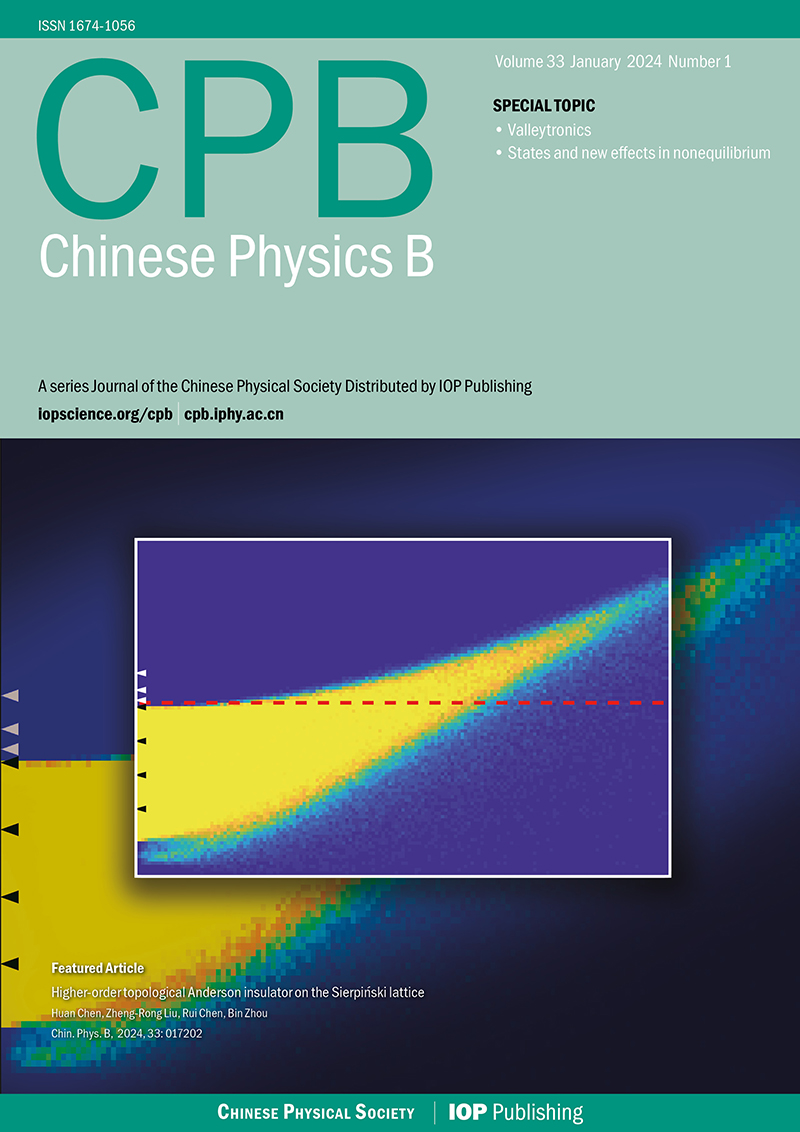n$维无质量标量场的参数估计
IF 1.5
4区 物理与天体物理
Q2 PHYSICS, MULTIDISCIPLINARY
引用次数: 0
摘要
与局部计量学相关的量子费雪信息(QFI)已被用于开放量子系统的参数估计。在这项工作中,我们计算了在 $n$ 维时空中与无质量标量场耦合的移动 Unruh-DeWitt 探测器的 QFI,并分析了 QFI 随时空维度、演化时间和 Unruh 温度等不同参数的变化。我们发现,随着时间的推移,状态参数的 QFI 从 1 美元单调递减到 0 美元。此外,我们还注意到,演化时间小的 QFI 比演化时间长的 QFI 高几个数量级。我们还发现,随着 Unruh 温度的升高,QFI 值开始下降,然后趋于稳定。我们观察到 QFI 取决于初始状态参数 $\theta$,当 $\theta=0$ 或 $\theta=\pi$ 时,$F_{\theta}$ 为最大值;当 $\theta=\pi/2$ 时,$F_{\phi}$ 为最大值。我们还得出,在演化时间相同的情况下,不同时空维度的状态参数的 QFI 最大值是不同的。本文章由计算机程序翻译,如有差异,请以英文原文为准。
Parameter estimation in $n$-dimensional massless scalar field
Quantum Fisher information(QFI) associated with local metrology has been used to parameter estimation in open quantum systems. In this work, we calculated the QFI for a moving Unruh-DeWitt detector coupled with massless scalar fields in $n$-dimensional spacetime, and analyzed the behavior of QFI with various parameters, such as the dimension of spacetime, evolution time, and Unruh temperature. We discovered that the QFI of state parameter decreases monotonically from $1$ to $0$ over time. Additionally, we noted that the QFI for small evolution times is several orders of magnitude higher than the QFI for long evolution times. We also found that the value of QFI decreases at first and then stabilizes as the Unruh temperature increases. It was observed that the QFI depends on initial state parameter $\theta$, and $F_{\theta}$ is the maximum for $\theta=0$ or $\theta=\pi$, $F_{\phi}$ is the maximum for $\theta=\pi/2$. We also obtain that the maximum value of QFI for state parameters varies for different spacetime dimensions with the same evolution time.
求助全文
通过发布文献求助,成功后即可免费获取论文全文。
去求助
来源期刊

Chinese Physics B
物理-物理:综合
CiteScore
2.80
自引率
23.50%
发文量
15667
审稿时长
2.4 months
期刊介绍:
Chinese Physics B is an international journal covering the latest developments and achievements in all branches of physics worldwide (with the exception of nuclear physics and physics of elementary particles and fields, which is covered by Chinese Physics C). It publishes original research papers and rapid communications reflecting creative and innovative achievements across the field of physics, as well as review articles covering important accomplishments in the frontiers of physics.
Subject coverage includes:
Condensed matter physics and the physics of materials
Atomic, molecular and optical physics
Statistical, nonlinear and soft matter physics
Plasma physics
Interdisciplinary physics.
 求助内容:
求助内容: 应助结果提醒方式:
应助结果提醒方式:


